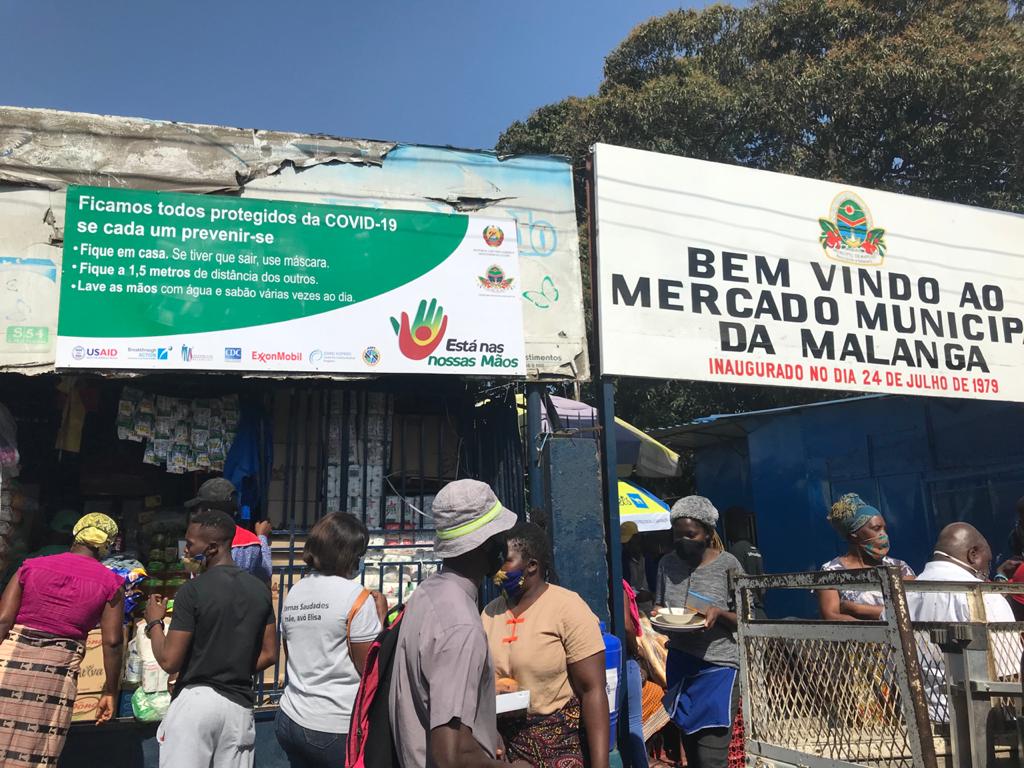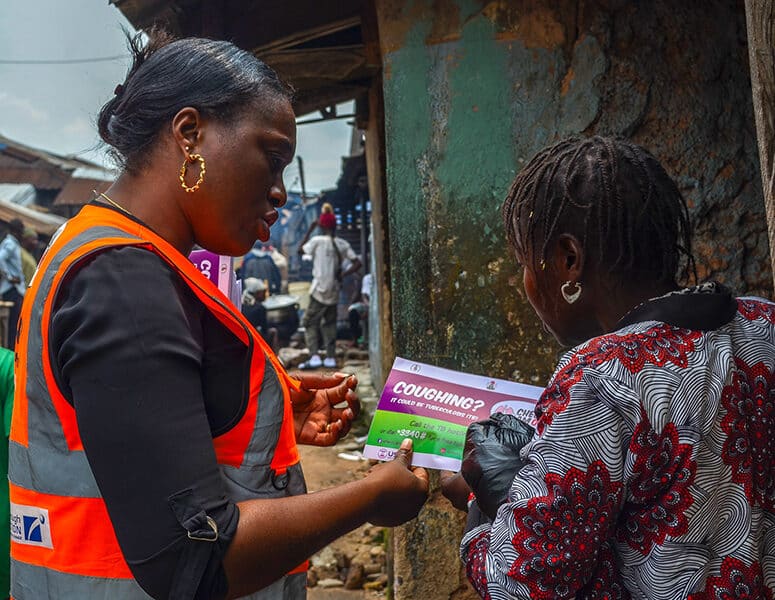When Mozambique’s National Institute of Health wanted to determine how COVID-19 was impacting the capital and largest city, Maputo, officials conducted a large survey, including randomly testing residents for the novel coronavirus.
What they found surprised them: Market vendors appeared to be those most exposed to COVID-19 and might be responsible for unwittingly spreading the virus to each other and their customers
Armed with this knowledge, the Ministry of Health engaged the Johns Hopkins Center for Communications-led Breakthrough ACTION project, which had already designed COVID prevention messages for the city’s buses, taxis and tuk-tuks. The work is funded by USAID.
Soon, the 10 largest markets in the city were flooded with Breakthrough ACTION’s prevention messages, with new signs about handwashing, social distancing and mask wearing, and activists with megaphones reinforcing the critical information as they walked through the shops. And other new behaviors were encouraged as well. Temperatures are now taken when vendors and buyers arrive, and buyers are asked not to touch the products, instead having vendors bag the desired oranges or vegetables or dry goods themselves so as not to spread the virus.
The “Está nas nossas mãos” (It’s in our hands) campaign messages have now reached an estimated 1,560 local market vendors and more 320,000 people who frequented the 10 markets since the campaign started in this summer.
“We tried to make vendors see they are at a higher risk of contracting COVID because they have contact with a lot of people,” says CCP’s Felisberto Massingue, a social and behavior change communication specialist in Mozambique. “The risk is always there.”
The National Institute of Health study found that market vendors were at higher risk of COVID exposure than health workers and police officers, Massingue says.
Massingue says it is hard to convince vendors to keep their distance from customers. Often, vendors will get close to customers to hawk their wares and even grab onto them to convince them to make a purchase.
Though most of CCP’s work in the markets is complete. Massingue says he and others have been working to help the city continue to prevent COVID-19 in its busiest markets. One issue, for example, is that vendors are told to wash their hands regularly but running water isn’t always available. The city is working to get hand sanitizer to vendors.
Mozambique has recorded 13,202 cases and 95 deaths since the pandemic began, according to Johns Hopkins University. Worldwide, at least 47.5 million people have been sickened by COVID-19 and at least 1.2 million people have died.
Mozambique was shut down earlier this year because of the pandemic but things have mostly opened again. Massingue says he hopes that people don’t become too lax in their prevention measures.
“We all have a responsibility for the health of others, and we want to make sure people feel pride in acting responsibly,” he says.





